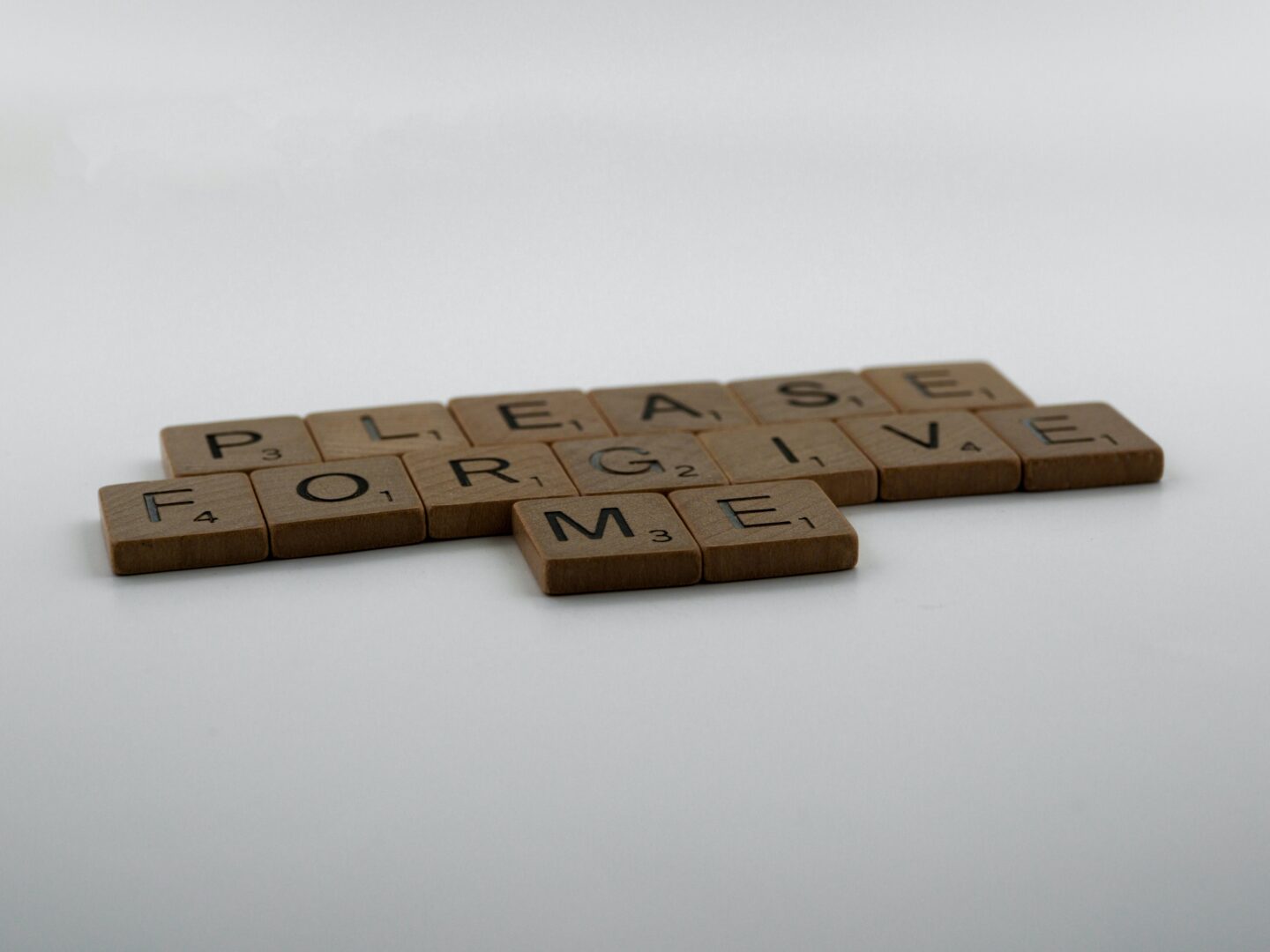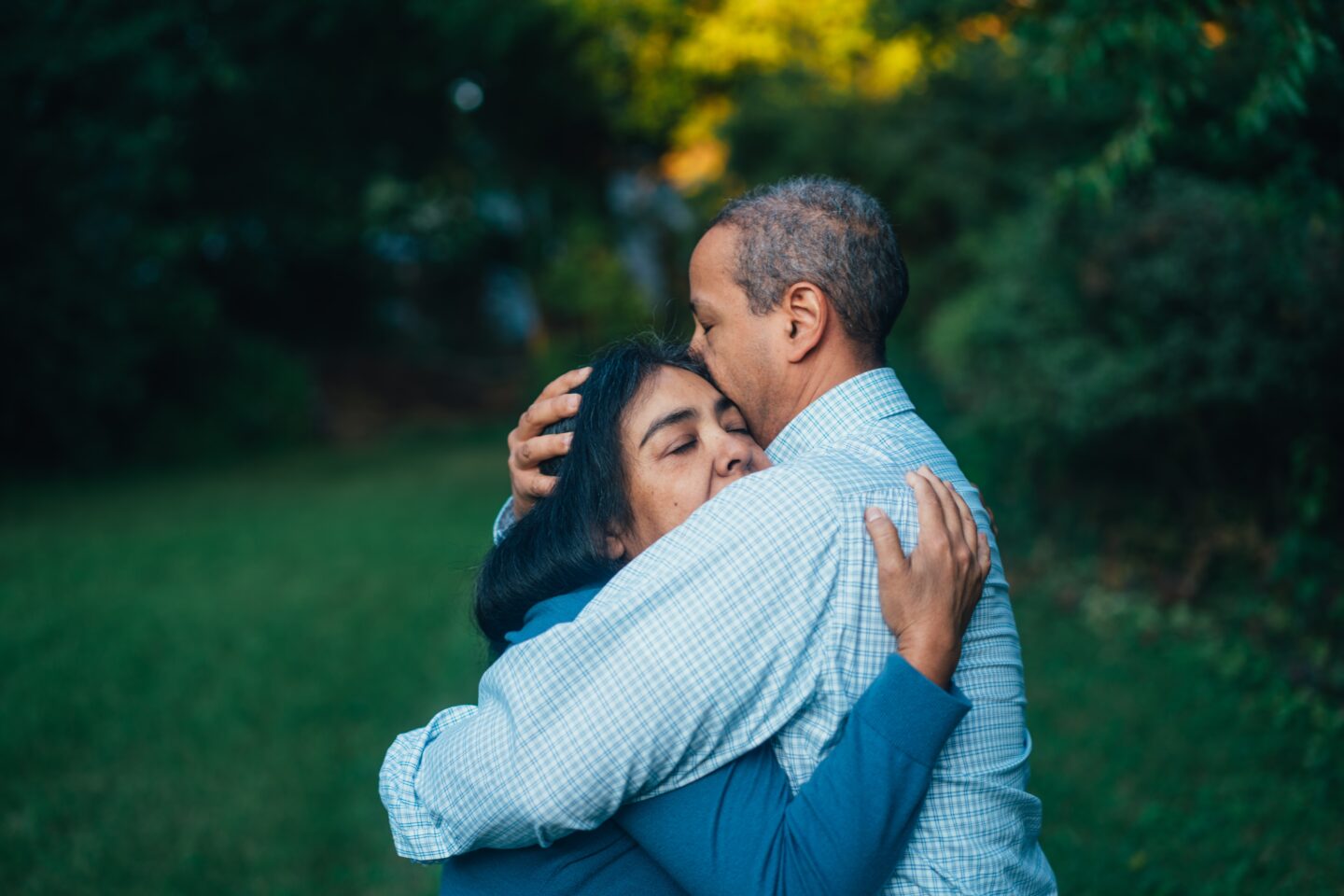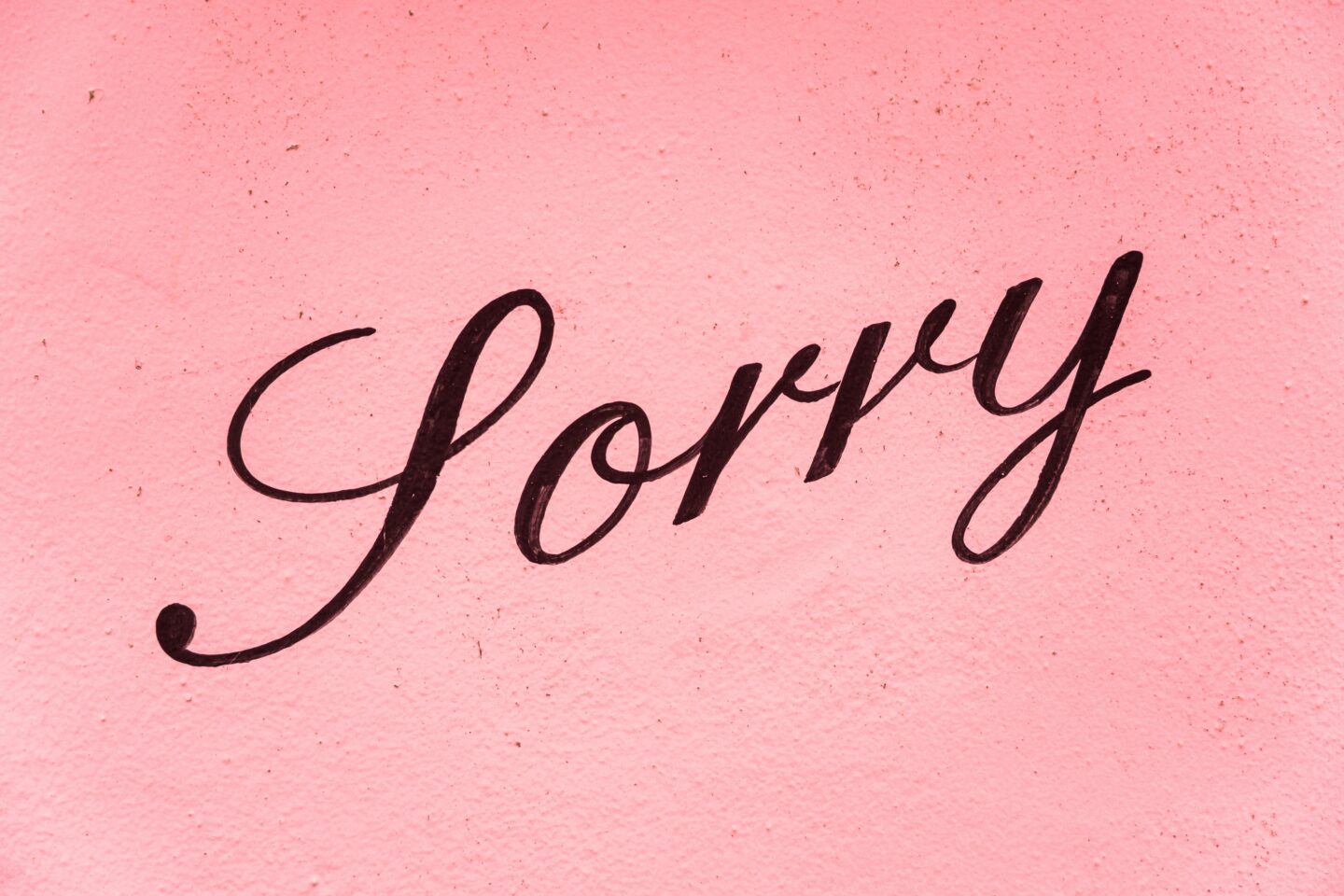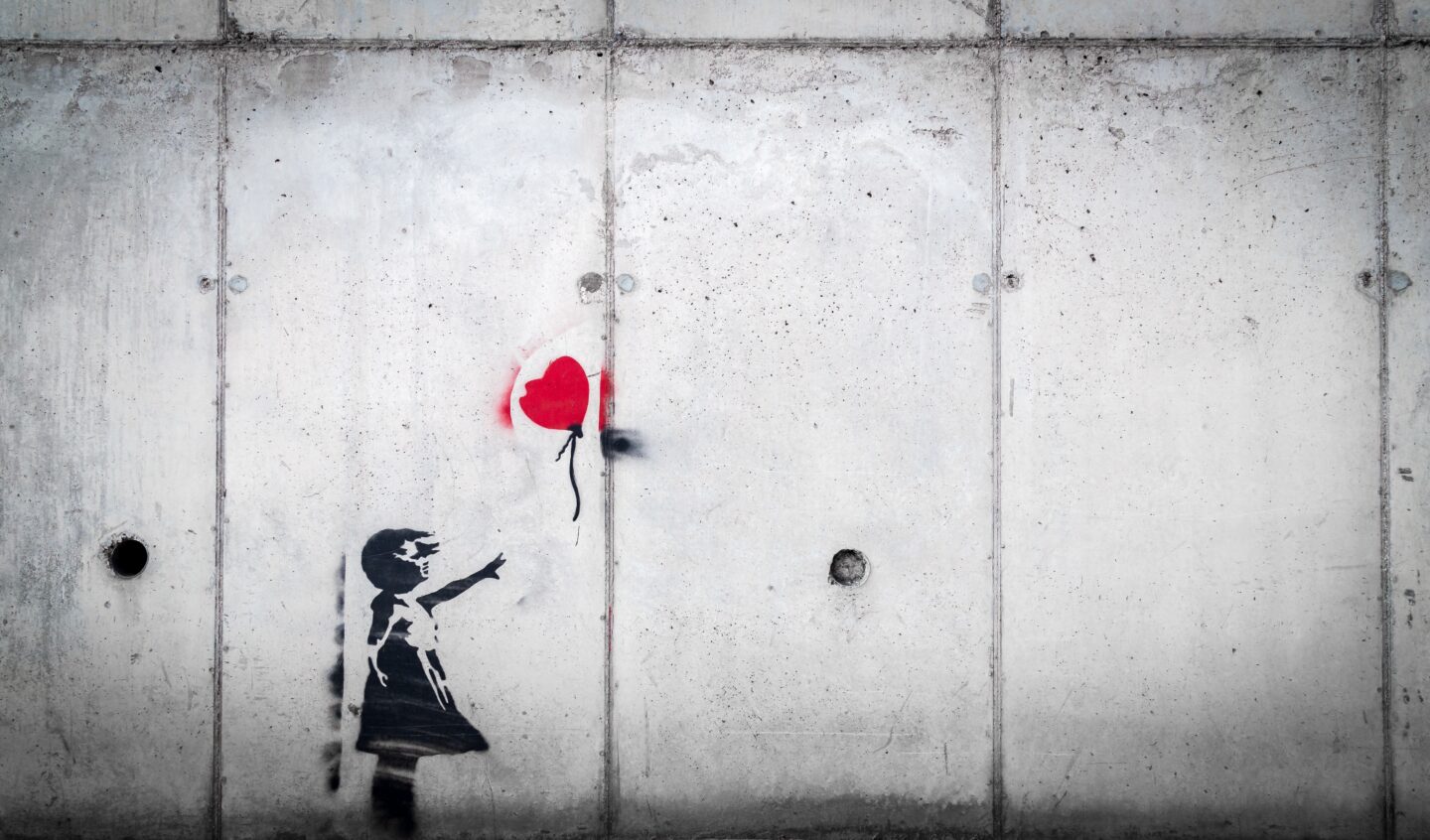
We all have our skeletons in the closet, and if you are not familiar with this term, it means that there is a big possibility that you have in your past, something that you are not happy about. Something you’re not proud of, and you carry with you a shame and guilt feeling that you struggle to let it go.
Also, between the 80,000 people, we meet during our lifetime, there will be inevitably someone that will hurt you.
Someone will treat you with disrespect. Someone may suddenly leave you. Something will happen that will give you some kind of emotional, physical or psychological pain that will become like an engraved scar in your body, mind and soul.
Dealing with people who let you down
I know this sounds a bit extreme, but it’s life. I hope you will never have to experience something like this. I genuinely wish you a peaceful life for you where you’re forever in love with yourself and everyone else in the world out there. However, I know that more often than not, the reality of life is a bit different.
If you are honest with yourself, you will probably find something you have done in the past to yourself or to someone else that you’re struggling to let it go and to forgive yourself for.
If you look even deeper, you will most likely also find someone that did something so wrong to you that he or she today is the protagonist of your desire for revenge.
Well, if this is the case, this article could help to bring some more peace into your life. It could help you to let go of that awful sense of resentment and grudge you’re holding towards yourself and towards someone else that for sure is not allowing you to live a peaceful and fulfilled life.
Forgiving: an act of weakness?

Image by Gus Moretta
Knowledge is power. Studying and understanding something before using it or applying it in your life will make a massive difference in your overall results. There are a lot of misconceptions around the word forgiveness, and I want first to clarify a few things before moving to the stage where you can start to learn how to really forgive first yourself and then who did you something wrong.
Since I started my personal development journey, in 2013, I heard many times this sentence: “you must forgive yourself first, then, you must forgive every single person that did something wrong to you, if you want to find peace and to move on with your life”.
I have to admit; it was such a painful and hard concept to accept. To me, forgiving was almost like an act of weakness and disrespect toward who received the wrong. Independently from the fact that who did the wrong was me or someone else
I was thinking, “if I forgive either myself or someone that did something wrong to me, is like I am passively accepting what has been done, almost like excusing the bad in some way.”
It was like being weak by not wishing someone else or even myself to pay and be punished for whatever wrong was being done. Revenge, grudges and resentment, as strange as it sounds, sometimes give you that fake strength you need to deal with some deep emotional pain.
For example, thinking like: “at some point, this person will pay what for what she/he did” some times helps. It helps thinking that at some point some kind of “divine justice” will take place and we will finally get back what we have lost, or at least we will finish even with wrongdoers even if the wrongdoer it’s us!
If you think, a bit like “an eye for an eye (and a tooth for a tooth)” that according to the Cambridge Dictionary meant that “when someone does something wrong, needs to be punished with the same wrong they have firstly done”.
Sometimes, it also helps act like a victim of our misdeeds excusing our suffering by saying “well, I deserve such and such for what I have done to…fill the blank”.
If you reflect for a moment, no one of those two approaches does anything to the wrongdoer. Not if the wrongdoer is you or someone else. The hope for revenge, grudges and resentment toward yourself or others for whatever has been done is only a pain that will eat you from the inside out.
It’s like a disease, and I suffered from this disease for a long time until I finally discovered the real meaning of forgiveness.
What forgiveness is not

First of all, forgiveness, it’s not a feeling. We would not be able to forgive anyone (including ourselves) for the simple fact that we will never feel to do it so.
Forgiving doesn’t mean, let’s pretend it never happened and it’s absolutely NOT condoning or excusing the offender’s behaviour, as well as it’s not minimising the wrong or even worse justifying it. Forgiveness is not repairing or returning to a relationship, this may come later on, but it’s not the goal of the act of forgiving. Actually, we will see later on that the offender is not even involved in the forgiving process.
Real forgiveness is never conditional: “If you do this [fill the blank] then I will forgive you” therefore is never based on the wrongdoer’s actions.
One of the false beliefs I was holding was that forgiving was close to forgetting the wrong. Then I understood that it’s very far from that. You will never be able to forget something that you’ve done wrong or that has been done to you. Therefore “forgive and forget” is an unrealistic way to see the act of forgiving.
Finally, forgiveness is not justice. Justice usually involves some kind of reward or punishment, while Forgiveness should occur whether justice is withheld or not.
What forgiveness really is
Forgiveness is only a decision.
To REALLY forgive, you must take the firm decision to accept what it was for what it was and consciously and with willingness, releasing the grudge, the resentment and the desire for vengeance that you’re holding toward yourself and toward someone else.
You have to decide on not dwelling anymore on that particular incident. You have to accept that it’s the moment to let it go, because still holding on to it, won’t change what happened, won’t change the other person and won’t even change who you are.
I know it might feel impossible for you right now. Depending on the wrong you did or received, it probably feels like something that you can’t, and you don’t want to do, and that’s fair enough. But I want you to know that understanding and applying real forgiveness will give you a sense of peace and freedom that nothing else can give it to you. Don’t get me wrong, I never said it was going to be easy, but indeed, understanding and unleashing the power of forgiveness, could be a life-changing act that you have the rights and duty to take.
“To forgive is to set a prisoner free and discover that the prisoner is you.” – Luis B. Smedes.
Are you ready for a life-changing activity?

For every problem, there is a solution, and for every solution, there is a precise method to follow.
Despite how emotional is the topic of forgiveness for you there is a set of steps you can follow to gain clarity, awareness and then take the actions you need to take to finally release the pain that is holding you back in many areas of your life. Remember, forgiveness is a decision, not a feeling.
Therefore, you must make the conscious decision to be courageous enough, to sit down with your pain and finally deal with it once and for all.
A VERY IMPORTANT NOTE!
Now, if you are not sure, if you don’t feel ready, or if you have any doubts about your willingness and your desire to forgive yourself or someone that did wrong to you, well stop, and don’t go any further in this article.
To take the most out of the following process, you must be open-minded. You must have in your heart the desire to move on in your life and to finally release all the pain, the sorrow and the resentment you’re holding on to. You must have a deep desire to be yet free.
If you are ready, I want to help you by giving four powerful steps to follow that should make the overall process of forgiving slightly more comfortable and full of meaning.
So, set some quality time for yourself, free from any distraction and with lots of pen and paper in hand. Before starting the process, have a few deep breaths, give a last in-depth check to your emotional state and again check your willingness to complete the following activity bearing in mind that could change your entire life. When you’re ready, then, start with step number 1.
The Four Steps of Forgiveness
Step 1. UNDERSTANDING
In this first step and most crucial step, you will improve your understanding of the injustice, and the impact that is having in your life. It does matter if the wrongdoer is you or someone else, you must first understand the WHAT before you can change anything in life. Remember, awareness is the key to every success!
Question 1 – Describe at the best you can the situation you have endured. What happened? Why do you think what YOU/THEY have dome is unfair or wrong?
Question 2 – Describe specifically the emotional, psychological and physical impact that this situation is having in your life.
Step 2. The DECISION

Image by Karim MANJRA
Based on what you know now about forgiveness in this step, you will have to decide to choose or reject forgiveness as an option.
Question 1 – Write down you own definition of forgiveness (be clear and specific as possible)
Now, at this stage, you might struggle with the decision of forgiving either yourself or someone else. You might think that you have the right to be angry and the offender (even if it’s you) doesn’t have the right to receive grace. This is the reason why it’s good to evaluate first the PROS and CONS of forgiving by asking yourself the following questions:
Question 2- What are the pros and cons of deciding to forgive yourself or the person who wronged you?
Question 3 – Despite the decision you take, (forgiving or not), describe how things might be different if you decide to forgive. (Be as specific as possible)
Step 3. LEARNING
During this step 3, you will start to learn how to see the offender in a possible new way and not only just for the wrong you or they have done.
Question 1 – Where and how the offender grew up? (if the offender is you, write your story) Could this have had an impact in their lives?
Question 2 – What are your feelings now toward the offender? (if the offender is you, write your feelings towards yourself)
Question 3 – Have you listed any positive feelings? If YES, describe them. If NOT describe your negative feelings at the best as you can. How strong are those feelings?
Step 4. DIGGING DEEP
The idea behind this last step is to help you to diminish the negative emotions associated with the injustice. You may also find some deep meanings of the experiences, and recognise ways in which you have grown as a result of the experience.
Question 1 – What are the benefits you are experiencing by forgiving yourself or the offender? What is the impact of forgiveness on your emotional, physical and psychological health?
Question 2 – Describe your growth because of the pain you’ve endured and as a result of the effort to forgive. How your view of yourself, people and the world out there has changed? How much stronger, do you feel compared to before deciding to forgive?
In Conclusion
I did this 4-step process several times in the last few years, and every time I have had a massive, powerful impact in my daily life. Again, it’s not an easy process; actually, I have to be very honest with you, it could be the most challenging task of all your life, but trust me it’s worth the effort.
We are all human beings, and we all make mistakes, we all need to forgive and to be forgiven for something.
As you’ve learned, in this article, forgiveness is only a decision. The decision you must make today if you want to be free from the pain you are still holding on to. If you want to finally get rid of all the emotional distress and struggles that for sure, you don’t deserve to feel anymore.
“Love prospers when a fault is forgiven.” – Proverbs 17:9A NLT
_____________
Click here to book you free 30-minute Life Coaching consultation!
Or visit: www.antonioespositocoaching.com
Peace,
Antonio
Main image by Brett Jordan.
